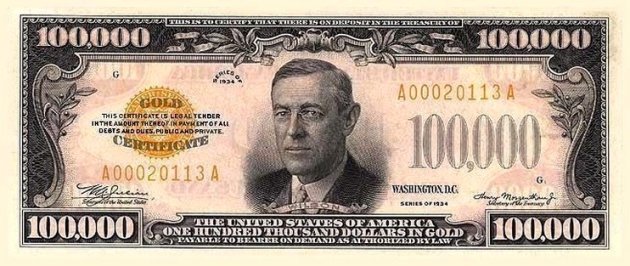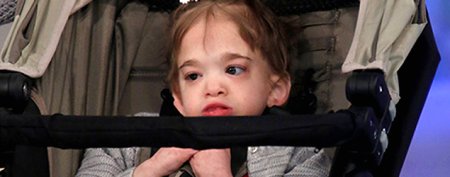
If you're looking to make the switch to an in-demand career field, consider earning one of these hot online degrees.
By Andrea ArguetaHave you hit your company's glass ceiling? Maybe you're in a struggling industry with little opportunity. Regardless of your situation, if you're thinking about changing things up professionally, there are a variety of booming fields to consider.
And with the flexibility of an online education, you can go back to school without giving up your current job.
So if you are looking to switch fields, here are five popular online degrees that could offer you the flexibility to help you reach your goals.
Online Degree #1: Bachelor's in Business Administration
 Potential Booming Career: Financial Analyst
Potential Booming Career: Financial AnalystWant to make the switch to the wonderful world of finance? Consider earning your bachelor's in business administration online.
According to the U.S. Department of Labor, a bachelor's in business administration is one of the degrees required by many financial analyst positions. As for opportunity, the Department of Labor reports 23 percent projected growth from 2010 to 2020.
Why online? "An online business administration degree might give you real-world experience - experience that you can't get in a traditional program," says Dani Babb, an online educational consultant and founder of the Babb Group. Students get to communicate electronically, which is common among colleagues in the business world, Babb adds.
Click to Find the Right Online Business Administration Program.
What you might learn: As a business administration and management major, you could develop your leadership skills while learning how to plan, organize, and direct an organization's activities, says the College Board, an organization of colleges and universities that administers tests such as the SAT. Commonly offered courses include business ethics and law, operations management, and financial management.
Online Degree #2: Associate's in Paralegal Studies
 Potential Booming Career: Paralegal
Potential Booming Career: ParalegalIf you are eager to pursue opportunities in the growing paralegal field, but can't quit your current gig to get the necessary schooling, consider earning your associate's degree in paralegal studies online.
According to the U.S. Department of Labor, the paralegal profession is projected to experience 18 percent growth from 2010 to 2020.
Why online? Going online gives students the flexibility to learn a new field while still working during the day and taking care of family needs, adds Babb.
Additionally, online paralegal degrees "...allow students to learn the language and to write and research in the same manner as traditional degrees," says Babb.
Click to Find the Right Online Paralegal Studies Program.
What you might learn: With common courses such as civil procedure, litigation, and legal research and writing, a paralegal studies program might prep students to conduct investigations and work under the supervision of a lawyer, says the College Board.
Online Degree #3: Associate's in Health Information Technology
 Potential Booming Career: Medical Records and Health Information Technician
Potential Booming Career: Medical Records and Health Information TechnicianThinking about making the switch to a data-driven health care field? An online associate's degree in health information technology might provide the flexibility you need to start prepping for a growing career in health information technology.
Per the U.S. Department of Labor, employment of medical records and health information technicians is projected to grow by 21 percent from 2010 to 2020.
Why online? According to Babb, online health information technology programs are popular because they offer students the flexibility they need to tend to all of their responsibilities. In fact, these programs now offer online labs so students can study anywhere - at the office or even at home.
Click to Find the Right Online Health Information Technology Program.
What you might learn: According to the College Board, health information technology students could study "everything you need to know to prepare and maintain medical records, from coding to terminology to special medical software." Classes could cover topics like medical terminology, health care statistics, and introduction to coding.
Online Degree #4: Bachelor's in Communications
 Potential Booming Career: Public Relations Specialist
Potential Booming Career: Public Relations SpecialistIf it's your goal to switch to a career as a public relations (PR) specialist, but you need some flexibility to fit schooling into your schedule, consider earning your bachelor's in communications online.
According to the U.S. Department of Labor, employment for PR specialists is projected to grow by 23 percent from 2010 to 2020.
Why online? Online communications programs remain popular because they have a competitive advantage over on-campus programs, according to Babb. "Learners spend a lot of time writing for online audiences and even presenting to others online, which is a sought-after skill for companies," Babb says.
And as if this weren't enough, communications is a very moldable degree, according to Babb. In fact, a student could go on to pursue an occupation in journalism, blogging, or marketing.
Click to Find the Right Online Communications Program.
What you might learn: As a business communications major, you may "learn how to write, edit, and speak professionally," says the College Board. Through courses like public relations, marketing, and mass communications, you can develop your communication skills by writing press releases or giving formal presentations.
Online Degree #5: Bachelor's in Public Administration
 Potential Booming Career: Social and Community Service Manager
Potential Booming Career: Social and Community Service ManagerLooking to pursue a career where you can give back to the community? To fit the required schooling into your busy schedule, consider earning a bachelor's in public administration online.
According to the U.S. Department of Labor, the employment growth for social and community service managers is projected to increase by 27 percent from 2010 to 2020.
Why online? With the flexibility of an online degree, a public administration student who is already working can still advance his or her career, according to Babb. In other words, this online degree provides a more flexible option for working students trying to prep for a career in public administration.
Click to Find the Right Online Public Administration Program.
What you might learn: As a public administration major, you typically study how different people interact and how U.S. policymakers balance the needs of various groups, according to the College Board. Through courses like public policy, community analysis, and economic development, you could build the skills needed to bring together diverse groups.




















 If you love psychology and delving into how the human mind works, you may want to think about earning this degree online.
If you love psychology and delving into how the human mind works, you may want to think about earning this degree online. Want to study accounting, but don't know if you can commit to set
class schedules and commutes to campus? Consider studying online.
Want to study accounting, but don't know if you can commit to set
class schedules and commutes to campus? Consider studying online. Going back to school to pursue your dream of teaching others doesn't
have to be so out of reach. With online learning, you could earn your
bachelor's in education on your schedule.
Going back to school to pursue your dream of teaching others doesn't
have to be so out of reach. With online learning, you could earn your
bachelor's in education on your schedule. If you want to go back to school to earn your communications degree,
going the online route could provide the flexibility you need to make it
happen.
If you want to go back to school to earn your communications degree,
going the online route could provide the flexibility you need to make it
happen.